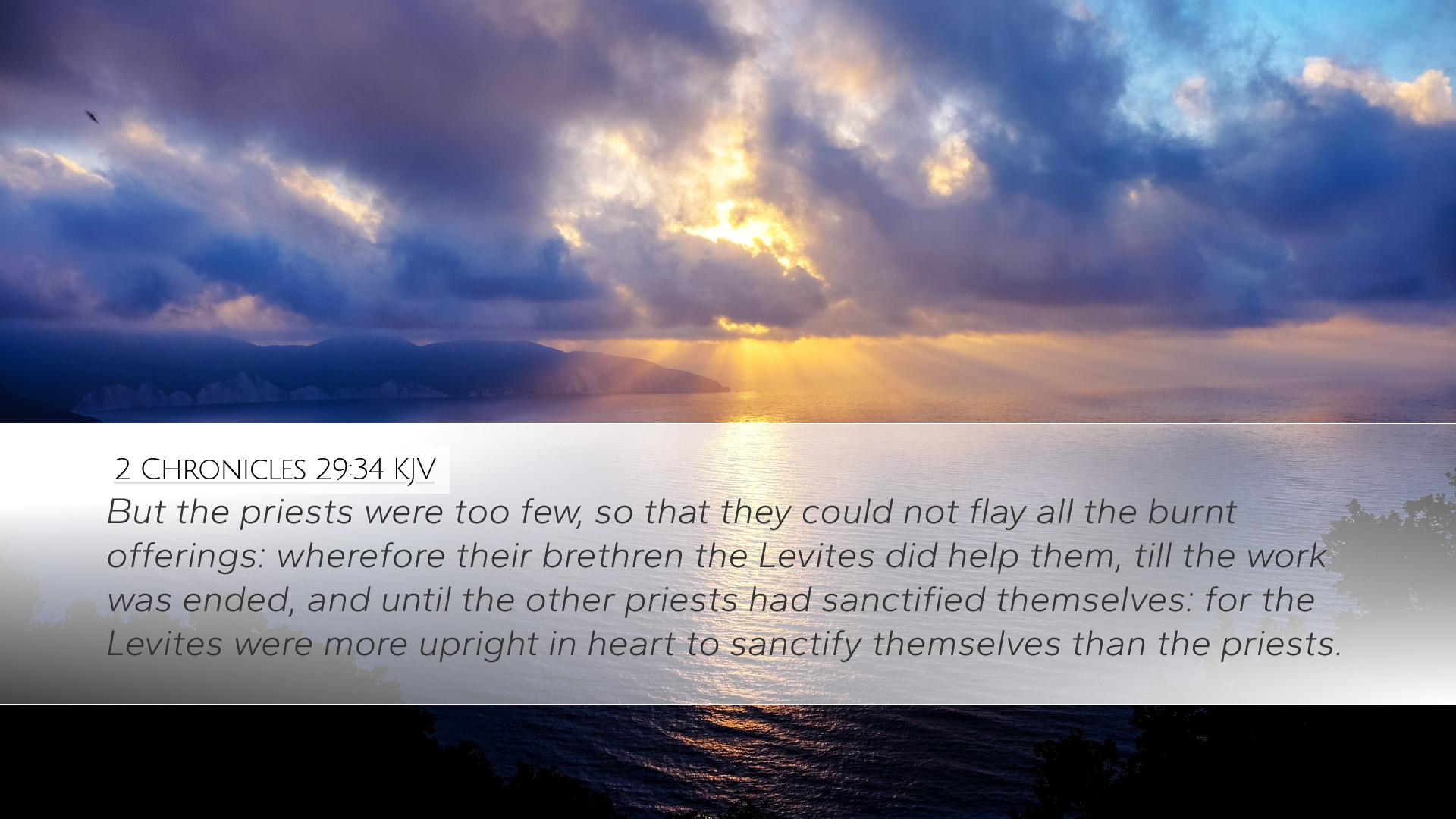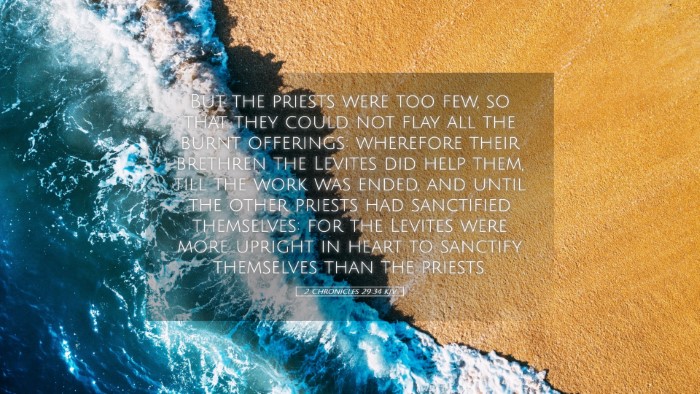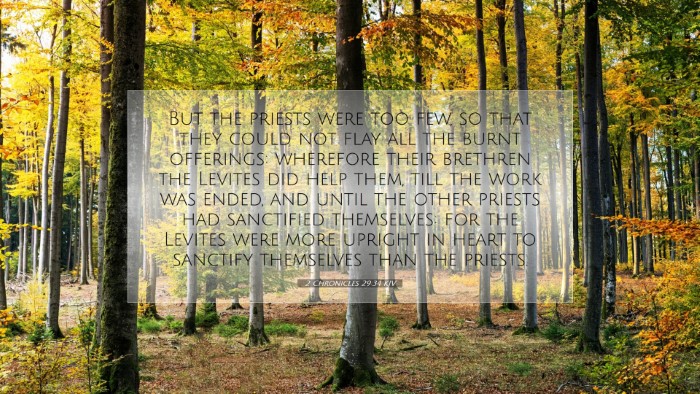Commentary on 2 Chronicles 29:34
Verse: 2 Chronicles 29:34 (KJV) - "But the priests were too few, so that they could not flay all the burnt offerings: wherefore their brethren the Levites did help them, till the work was ended, and until the other priests had sanctified themselves: for the Levites were more upright in heart to sanctify themselves than the priests."
Introduction
This verse occurs in the context of King Hezekiah's reformation of worship in Judah. Following a period of idolatry and neglect of the Temple, Hezekiah initiated significant changes to restore the worship of Yahweh. The description of the state of the priests and Levites here provides important insights into both the practical challenges of revival and the spiritual condition of the leaders.
Summary of Commentaries
-
Matthew Henry's Commentary
Henry emphasizes the urgency and dedication required during the revival efforts initiated by Hezekiah. The priests were overwhelmed, and the Levites took the initiative to assist them, indicating a cooperative spirit in worship and service to God. This scenario highlights the importance of having dedicated workers in God's service and reflects the collective responsibility in ministry.
-
Albert Barnes' Notes on the Bible
Barnes notes that this passage underscores a key point about the nature of ministry and service: while the priests had specific roles, the Levites stepped in due to the shortage of priests. This collaboration points to the idea that in times of spiritual renewal, participation from all members of the congregation is vital. Moreover, the true heart of service is described, where the Levites' willingness to sanctify themselves reflects the condition of godliness necessary for public worship.
-
Adam Clarke's Commentary
Clarke points to the significance of the Levites’ involvement. He remarks on the spiritual integrity of the Levites in contrast to the priests, suggesting that genuine readiness and moral quality are essential for fulfilling God's commandments. Clarke elaborates on the requirements of sanctification, which was not just a formality, but a state of heart and character that aligned with God's holiness.
The Importance of Sanctification
At the heart of this verse lies the theme of sanctification—a necessary process for those who serve the Lord. The priests’ inability to perform their duties due to a lack of preparation speaks volumes about their spiritual state. The Levitical assistance in this instance underscores the communal aspect of worship, as all believers must be engaged in the pursuit of holiness. When the leadership falters due to lapses in personal holiness, it falls to the broader community to uphold the sanctity of worship.
Lessons for Modern Ministry
-
Collaboration in Service
The narrative encourages collaboration among the body of Christ. Just as the Levites supported the priests, church members today must be prepared to fill in gaps in ministry through teamwork and support.
-
Personal Holiness is Crucial
The reference to the Levites being more upright in heart serves as a reminder of the necessity for personal holiness in ministry. Spiritual leaders today must prioritize their sanctification to lead effectively.
-
The Call to Serve
Every congregation should recognize that service is not limited to a select few; it is a call for all. Just as the Levites assisted during a time of need, members are encouraged to step into various roles for the good of the church.
Conclusion
In summary, 2 Chronicles 29:34 is a rich passage that reveals the dynamics of worship, leadership, and community involvement in the spiritual realm. The collaboration between the priests and Levites brings to light essential truths about the church's function as the body of Christ. Pastors and scholars should reflect on the implications of this verse for today’s ministry, emphasizing the vital roles of sanctification and community in worship and service.
Further Reflection
This verse invites deeper reflection on the spiritual state of one’s own community. How can modern congregations model the unified heart and commitment to sanctification seen in the Levites? What practical steps can leaders take to foster an environment of collaboration and spiritual health? These questions inspire ongoing examination and engagement in the church's mission to worship God in Spirit and truth.


